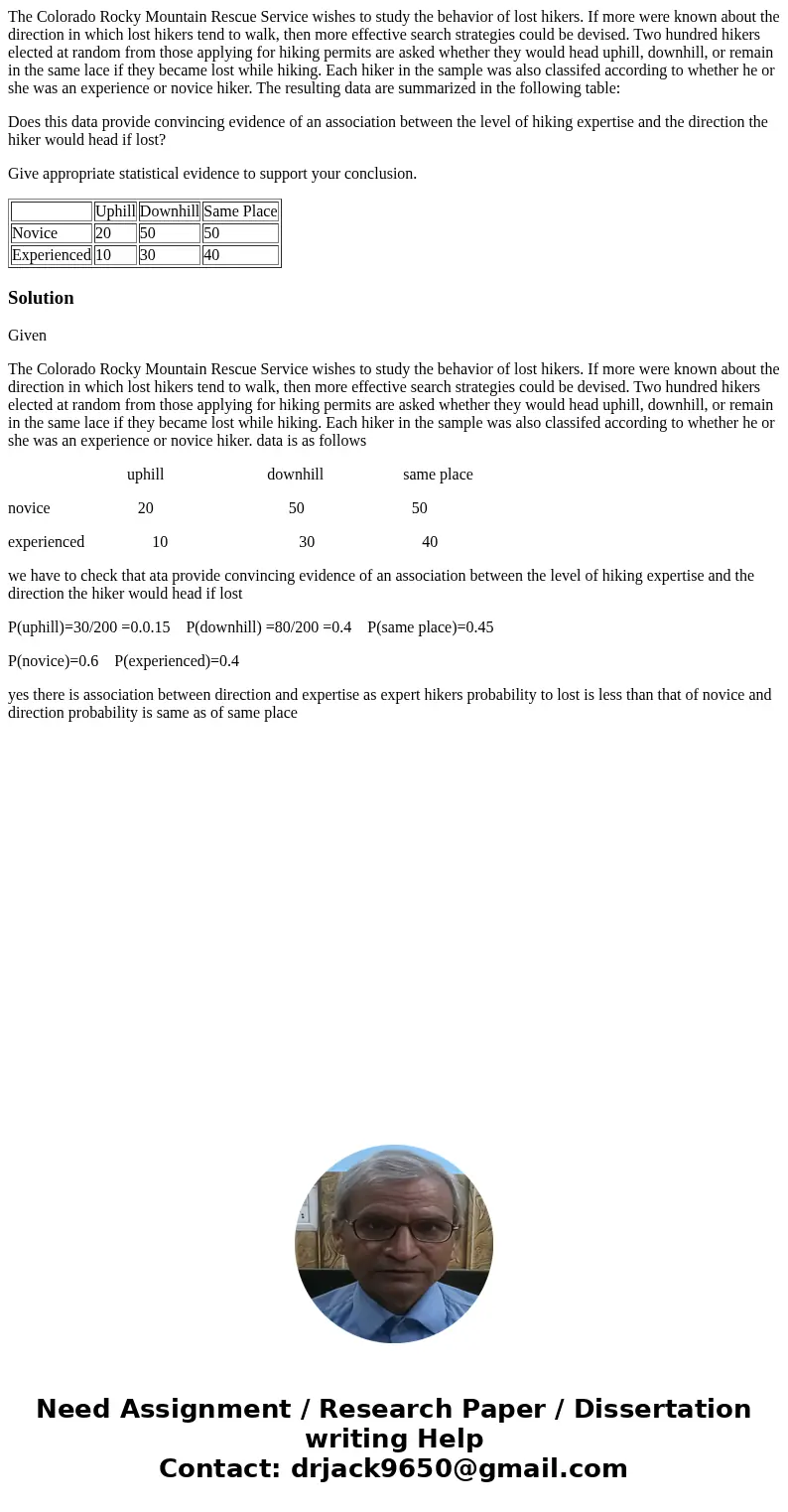The Colorado Rocky Mountain Rescue Service wishes to study t
The Colorado Rocky Mountain Rescue Service wishes to study the behavior of lost hikers. If more were known about the direction in which lost hikers tend to walk, then more effective search strategies could be devised. Two hundred hikers elected at random from those applying for hiking permits are asked whether they would head uphill, downhill, or remain in the same lace if they became lost while hiking. Each hiker in the sample was also classifed according to whether he or she was an experience or novice hiker. The resulting data are summarized in the following table:
Does this data provide convincing evidence of an association between the level of hiking expertise and the direction the hiker would head if lost?
Give appropriate statistical evidence to support your conclusion.
| Uphill | Downhill | Same Place | |
| Novice | 20 | 50 | 50 |
| Experienced | 10 | 30 | 40 |
Solution
Given
The Colorado Rocky Mountain Rescue Service wishes to study the behavior of lost hikers. If more were known about the direction in which lost hikers tend to walk, then more effective search strategies could be devised. Two hundred hikers elected at random from those applying for hiking permits are asked whether they would head uphill, downhill, or remain in the same lace if they became lost while hiking. Each hiker in the sample was also classifed according to whether he or she was an experience or novice hiker. data is as follows
uphill downhill same place
novice 20 50 50
experienced 10 30 40
we have to check that ata provide convincing evidence of an association between the level of hiking expertise and the direction the hiker would head if lost
P(uphill)=30/200 =0.0.15 P(downhill) =80/200 =0.4 P(same place)=0.45
P(novice)=0.6 P(experienced)=0.4
yes there is association between direction and expertise as expert hikers probability to lost is less than that of novice and direction probability is same as of same place

 Homework Sourse
Homework Sourse